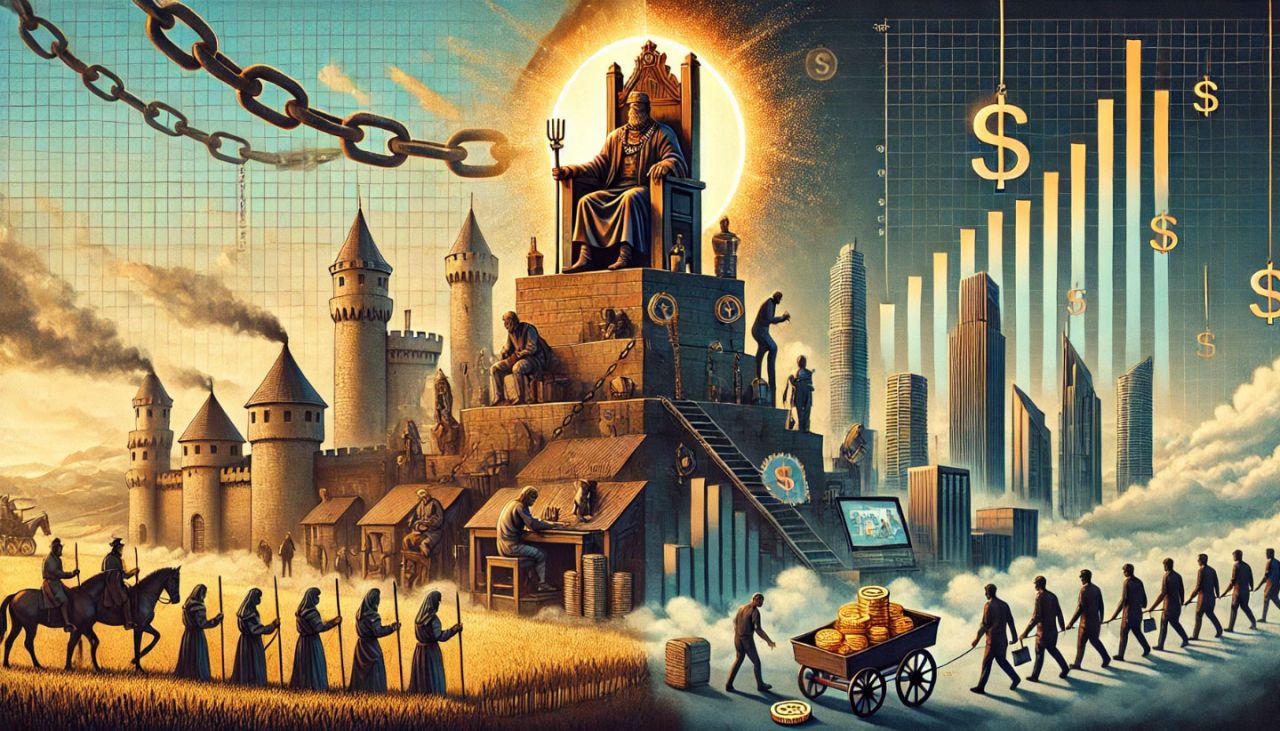How Authoritarian Systems Promote the Worst Leaders
Loyalty Over Competence
One of the defining traits of authoritarian systems is their prioritization of loyalty over competence. Leaders in such regimes are not chosen for their skills or ability to solve problems but for their willingness to conform to the dominant ideology and demonstrate unwavering loyalty to those in power.
Take the Soviet Union under Joseph Stalin as an example. During the Great Purges of the 1930s, Stalin eliminated countless capable military leaders, scientists, and administrators who posed even a remote threat to his authority.
This purge crippled the Soviet military, leaving it ill-prepared for the initial stages of World War II, and stifled scientific innovation by removing some of the nation’s brightest minds. In their place, he promoted individuals who lacked the qualifications to effectively govern but were loyal to him.
This decision had dire consequences, particularly during World War II, when the Soviet military’s lack of experienced leadership led to catastrophic losses in the early years of the conflict.
Fear of Accountability and Echo Chambers
Authoritarian leaders often surround themselves with “yes-men” who are afraid to voice dissent. This creates a dangerous echo chamber where bad decisions go unchallenged and feedback loops reinforce destructive policies.
A stark example is Mao Zedong’s Great Leap Forward. Local officials were incentivized to exaggerate production figures to align with Mao's ambitious goals and avoid punishment. This systemic distortion was fueled by fear of reprisal and the pressure to compete with neighboring regions in showing loyalty to the regime.
Consequently, the false reports led to unachievable quotas and severe resource misallocations, ultimately resulting in one of the deadliest famines in history, with an estimated 15 to 45 million deaths.
This crisis highlighted how authoritarian systems punish honesty and reward deception, creating catastrophic outcomes.
The Psychological Traits of Authoritarian Leaders
Authoritarian leaders often display traits such as paranoia, narcissism, and an obsession with control. These traits manifest in policies that prioritize personal loyalty over expertise, such as purges of skilled officials or over-centralized decision-making that ignores local realities.
For instance, Hitler’s mistrust of his generals led to disastrous micromanagement of military strategy, particularly his refusal to allow strategic retreats, which caused devastating losses on the Eastern Front.
Similarly, Stalin’s paranoia fueled purges that crippled Soviet institutions, weakening the military at critical moments and exemplifying how authoritarian traits hinder effective governance.
The Cost to Society
Human Suffering
The human toll of authoritarian mismanagement is staggering. Entire populations have been subjected to famine, repression, and war as a result of misguided policies. The Holodomor in Ukraine (1932–1933) is a harrowing example, where Stalin’s policies of forced collectivization and grain requisitioning led to mass starvation, killing millions.
Economic Stagnation and Collapse
Economic mismanagement is another hallmark of authoritarian systems. Without accountability, corruption flourishes, and resources are often allocated based on political favoritism rather than economic need.
The stagnation of the Soviet economy during the Brezhnev era exemplifies this.
By the 1980s, systemic inefficiencies and corruption had led to economic decline, contributing to the USSR’s eventual collapse.
Erosion of Social Trust
Authoritarian regimes erode social trust by fostering a culture of surveillance and fear. East Germany’s Stasi, for instance, turned neighbor against neighbor, leaving a legacy of mistrust that persisted long after the regime’s fall.
Such environments stifle innovation and cooperation, further undermining societal progress.
The Self-Destructive Cycle of Authoritarianism
Feedback Loops of Decline
Authoritarian systems are inherently resistant to change. Suppression of dissent and centralization of power prevent course correction, creating a feedback loop where bad policies are perpetuated.
This dynamic was evident in the late Soviet Union, where leaders like Leonid Brezhnev clung to outdated policies, deepening the system’s dysfunction.
Ruling Over Ashes: The Destructive Mentality
A particularly insidious aspect of authoritarian regimes is the willingness of some leaders to destroy everything rather than relinquish power. Hitler’s “Nero Decree,” which ordered the destruction of German infrastructure as Allied forces advanced, exemplifies this mindset.
Today, similar rhetoric can be observed in leaders like Vladimir Putin, whose aggressive foreign policies risk global destabilization.
Authoritarianism on a Global Scale
If authoritarian regimes proliferate, the result could be perpetual global conflict.
Contemporary examples like North Korea’s nuclear brinkmanship or Russia’s invasion of Ukraine illustrate how authoritarian states escalate tensions to assert dominance.
These conflicts drain global resources, destabilize regions, and exacerbate human suffering, demonstrating that such regimes are not just unsustainable domestically but are also detrimental to international peace and progress.
By their own logic of domination and power struggles, authoritarian states operate on a zero-sum principle, where any competitor is viewed as a threat to be eliminated.
Compounding this is the corrosive effect of propaganda wars, where misinformation fragments human society, erodes trust, and strips away collective justice.
This environment leaves ordinary people vulnerable to exploitation by the powerful, as societal guardrails designed to protect rights and freedoms are systematically dismantled.
This fuels endless arms races and cycles of conflict, destabilizing regions, draining resources, and diverting global progress away from collaborative efforts. Without accountability or collaboration, the world risks devolving into a neo-feudal state, where perpetual power struggles among authoritarian "lords" define humanity's future.
The resulting loss—in lives, innovation, and global stability—would create a bleak and fractured dystopia.
Why ‘Isms’ Fail Society
Ideological Rigidity
Extreme ideologies, whether fascism, communism, or unregulated capitalism, prioritize dogma over adaptability. This rigidity stifles progress and leads to societal setbacks.
For instance, the Soviet Union’s obsession with ideological conformity hindered scientific and technological innovation, leaving it unable to compete with more flexible systems like the United States.
Loss of Consensus and Agency
True societal order emerges through consensus and collaboration, not coercion.
The democratic recovery of Western Europe after World War II contrasts sharply with the stagnation of the Eastern Bloc, highlighting the long-term benefits of systems that prioritize individual agency and collective decision-making.
Conclusion: A Call to Action
Authoritarianism, while appearing efficient in the short term, is ultimately unsustainable. Its reliance on bad leadership, suppression of dissent, and ideological rigidity leads to self-destruction, often at immense cost to the populations it governs.
On a global scale, the proliferation of authoritarian regimes would trap humanity in a cycle of endless conflict, undermining progress and peace.
The lessons of history are clear: we must remain vigilant against authoritarian tendencies in all forms and foster systems that prioritize accountability, adaptability, and consensus.
By promoting civic engagement, critical thinking, and resistance to disinformation, we can build societies that are resilient to the allure of authoritarianism.
The choice is ours: to learn from history or risk repeating its darkest chapters.
Sources
- Applebaum, Anne. Red Famine: Stalin's War on Ukraine. New York: Doubleday, 2017.
- Dikötter, Frank. Mao's Great Famine: The History of China's Most Devastating Catastrophe. Walker & Company, 2010.
- Snyder, Timothy. Bloodlands: Europe Between Hitler and Stalin. Basic Books, 2010.
- Kershaw, Ian. The End: Hitler's Germany 1944-45. Penguin Books, 2011.
- Gellately, Robert. Lenin, Stalin, and Hitler: The Age of Social Catastrophe. Knopf, 2007.















